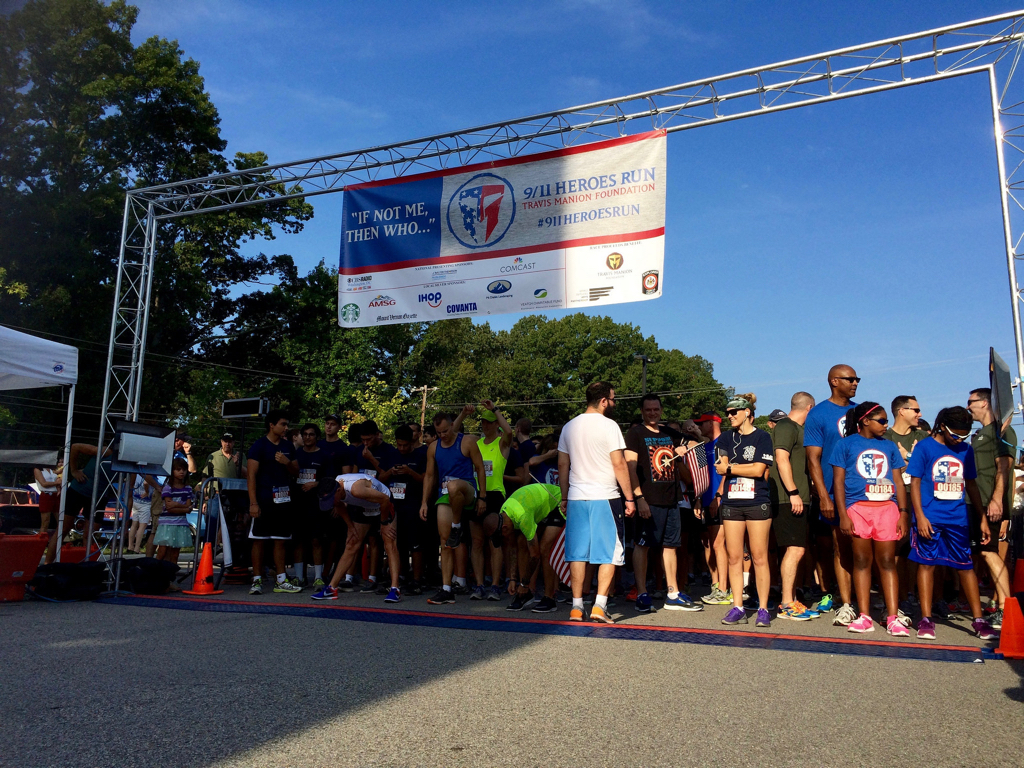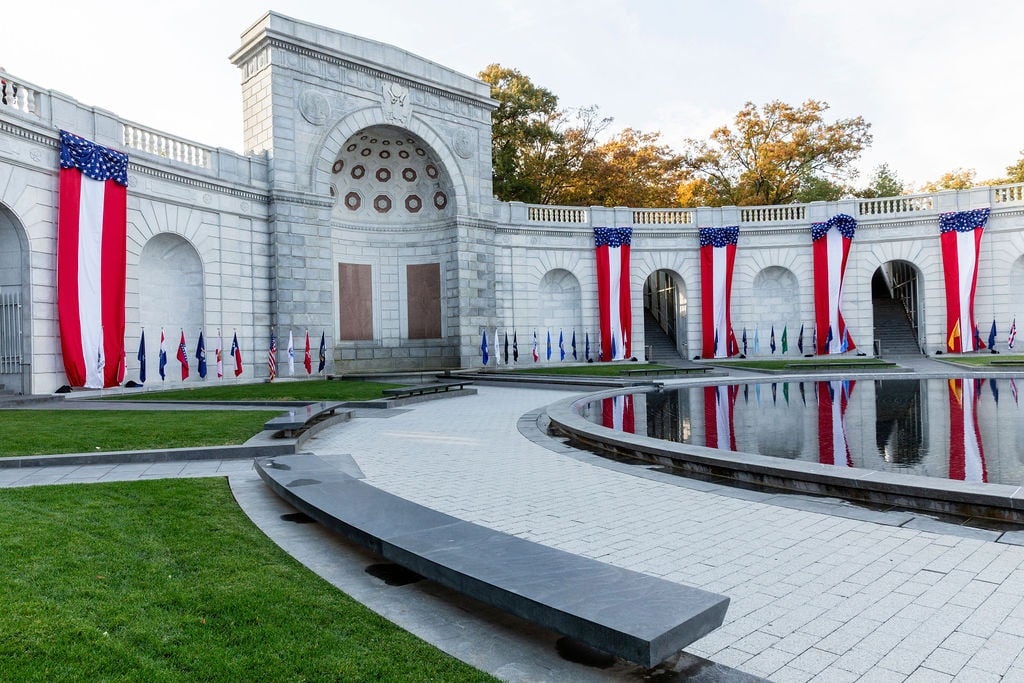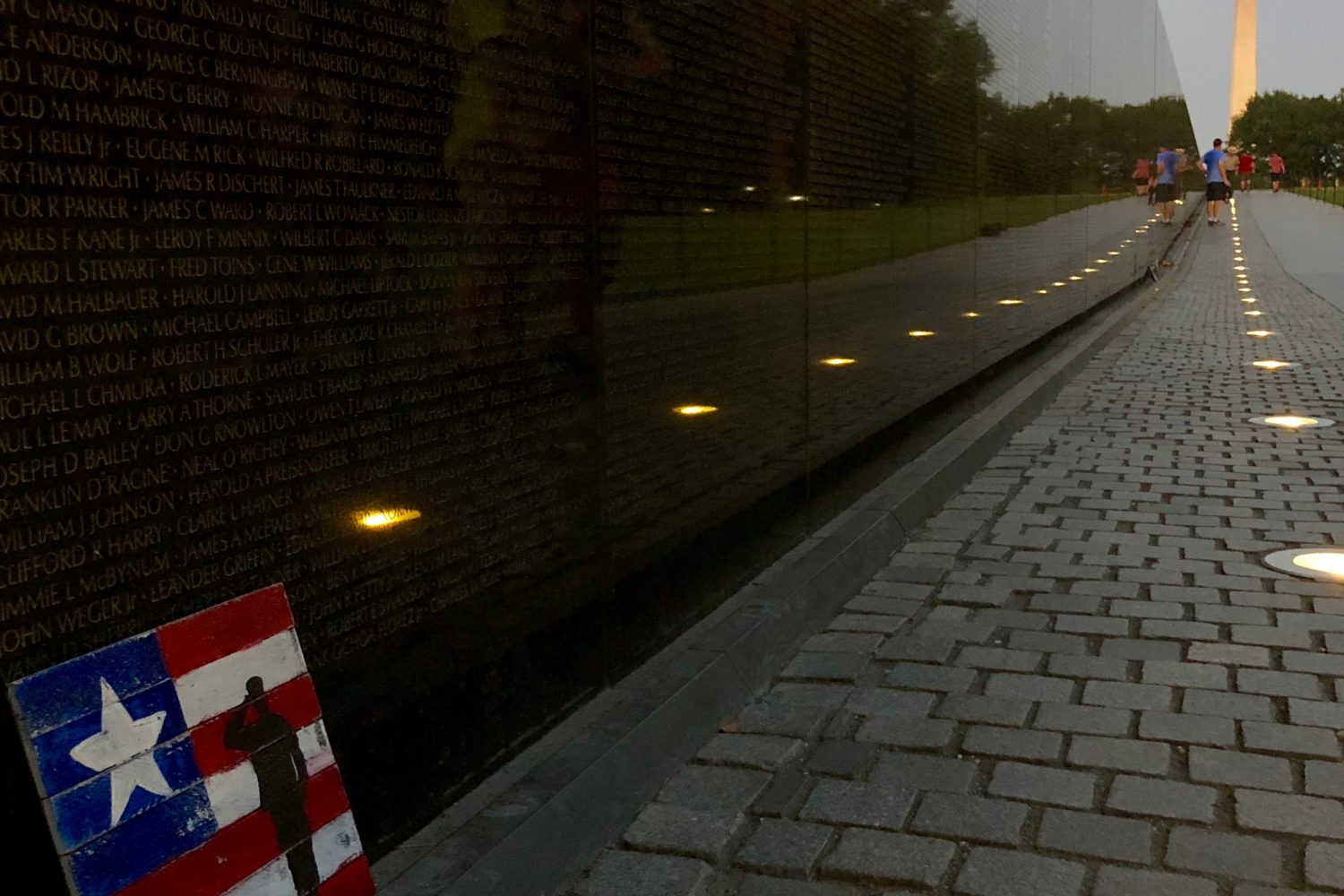On April 29, 2007, First Lt. Travis Manion and his fellow Marines were ambushed by insurgent forces while on patrol in Iraq’s Al Anbar province. Manion was shot and killed by a sniper after putting himself in the line enemy fire to protect his wounded Marines; everyone else in the patrol survived.
Three years later, in another war in another country, Lt. Brendan Looney, a Navy SEAL, was killed in Ayatalah Village, Afghanistan when his Black Hawk helicopter crashed.
Manion, from Doylestown, Pennsylvania and Looney, who grew up in Silver Spring, had been roommates and best friends at the US Naval Academy. They are buried side-by-side in Arlington National Cemetery.
Among those they left behind were Manion’s sister, Ryan, and Looney’s wife, Amy. Today, they lead the Travis Manion Foundation, a charity devoted to “empowering veterans and families of fallen heroes to develop character in future generations.”
Character is an amorphous concept. But Ryan and Amy have made it their mission to promote these values, and, perhaps more important, give purpose to a class of people who, upon returning from duty, often struggle to find one.
One of the most notable ways they’ve done this is through their 9/11 Heroes Runs, a series of races across the country meant to honor the service members and civilians killed in the Iraq and Afghanistan wars and terrorist attacks since 2001. Ahead of Sunday’s event in Annapolis, I chatted with Ryan and Amy about what character means in 2017, their favorite success stories from the foundation, and how they’ve continued to cope with their losses.
Character development is a critical part of the foundation’s mission. Does that feel particularly important these days?
Ryan: Because of where we are right now as a country, with this political divide, I see the work we’re doing as even more important. Because we’ve found a way to get above all that, and the men and women that serve within our organization, whether they’re veterans or families of the fallen or just inspired civilians, they’re not turning to each other asking what side of the aisle they stand on. I think the work that we’re doing transcends all that. And in times like these, it’s important that we can look above all the fray of what’s happening to something bigger than ourselves.
How do y’all define character?
Amy: For us, that starts with very small steps. Whether that’s a small act of kindness, picking up trash, or doing something that really shows you’re willing to step up and lead. I think where Travis’s mantra of “If not me, then who?” really comes into play—it’s about stepping up when nobody else is going to.
Ryan: We’re really pressing the charge on how to redefine our national character, and for us, that’s putting our service members at the forefront. Because they represent all these things that we’re trying to teach to youth—integrity, courage, leadership. And so that’s why we think our model is so important, this idea that we can have men and women who have selflessly served our country and then come back and continue to serve by inspiring the next generation to be servant leaders. It’s not about encouraging them to join the military.
How did you guys come to know each other and decide this foundation was something you should pursue?
Ryan: I’m always very quick to say that it was neither Amy nor I who put the foundation into the works. It was my mom, and my mom had just passed away from cancer. But she was really the catalyst. I saw it as a way for her to channel the grief of the loss of her only son, and I very much in the beginning assumed that we would stay this small memorial fund, doing the local things, doing scholarships outside of Philadelphia and such. But she envisioned something much bigger.
Amy: Brendan was killed in 2010, and Ryan’s family were the first to really come to our side. They were really the only other family that we knew that had lost a loved one, and we knew that they understood everything that we were going through. The next year, Ryan’s mom asked if I wanted to get involved with the foundation. And, gosh, I think at that time, we had Ryan was on board, and maybe two other volunteers. But they suggested I volunteer to be the race director out in San Diego, that it would be a good way to find a new, rewarding purpose after losing Brendan. I just remember that September 11 in 2011, it was almost just about 1,200 runners. So I just remember being in such awe and disbelief of how many people still cared about our military, still cared about our first responders, and still cared about the Manion family, the Looney family, and myself, and Brendan and Travis. Five and a half years later, I’m here in D.C. working alongside Ryan.
Were there moments when you were struck by how positive this has been not just for different communities, but also for yourselves as people coping with loss?
Ryan: Beyond just watching individual success cases with veterans we’re working with, the 9/11 Heroes runs are such an incredibly display of what makes this country so special. And when you see thousands of people galvanize, to come out, every year, that feels really rewarding to me.
What are the main ways you try to empower these veterans to inspire others?
Amy: It’s really about helping them figure out what their strengths and passions are. We do that through our veteran transition workshops, where we’re showing them how to take what they’re good at and apply it each and every day in civilian life to better themselves and those around them. Once you know what it is you’re good at, and you’re using that, you’re going to ultimately build better relationships. You’re going to find a job that makes you feel the same sense of purpose that you had when you were in the military.
I’m sure y’all have been keeping up with this Fat Leonard scandal in the Navy. Do you ever feel like these big stories of corruption can distract from not just your organization’s mission, but also what it really means to serve?
Ryan: Yeah, I think so, because a scandal’s gonna get 10 times more play than a group of veterans building a house for the homeless. But I think at the end of the day, what we’ve decided as an organization is we’re going to keep pushing out the story that, within that 1 percent of our nation who serve, 99 percent of them are an amazing example of what leadership is all about. We’ll try to filter out the small percentage of negative characters who eat up the news cycle.
Do y’all have any favorite success stories?
Amy: We have multiple local ambassadors who blow my mind on a daily basis. Jim O’Ferrell hosts our Alexandria 9/11 Heroes Run, which had about just under 2,000 runners this year. He’s constantly going into schools and working with young adults, teaching them how to go out and live a life of character. He leads another initiative that we do twice a year called Operation Legacy, which is two national weeks of service that we host in 30-plus locations all across the US. He’s a veteran, but he also lost his college roommate. He kind of fits into most buckets of who we’re serving, and I just think it’s really incredible to see how much some of these individuals. It’s like you give them a little bit of work and then all of a sudden, they’ve taken it and built it into the foundation of their day-to-day. It’s pretty neat to watch that evolution.
This review has been condensed and edited.



















